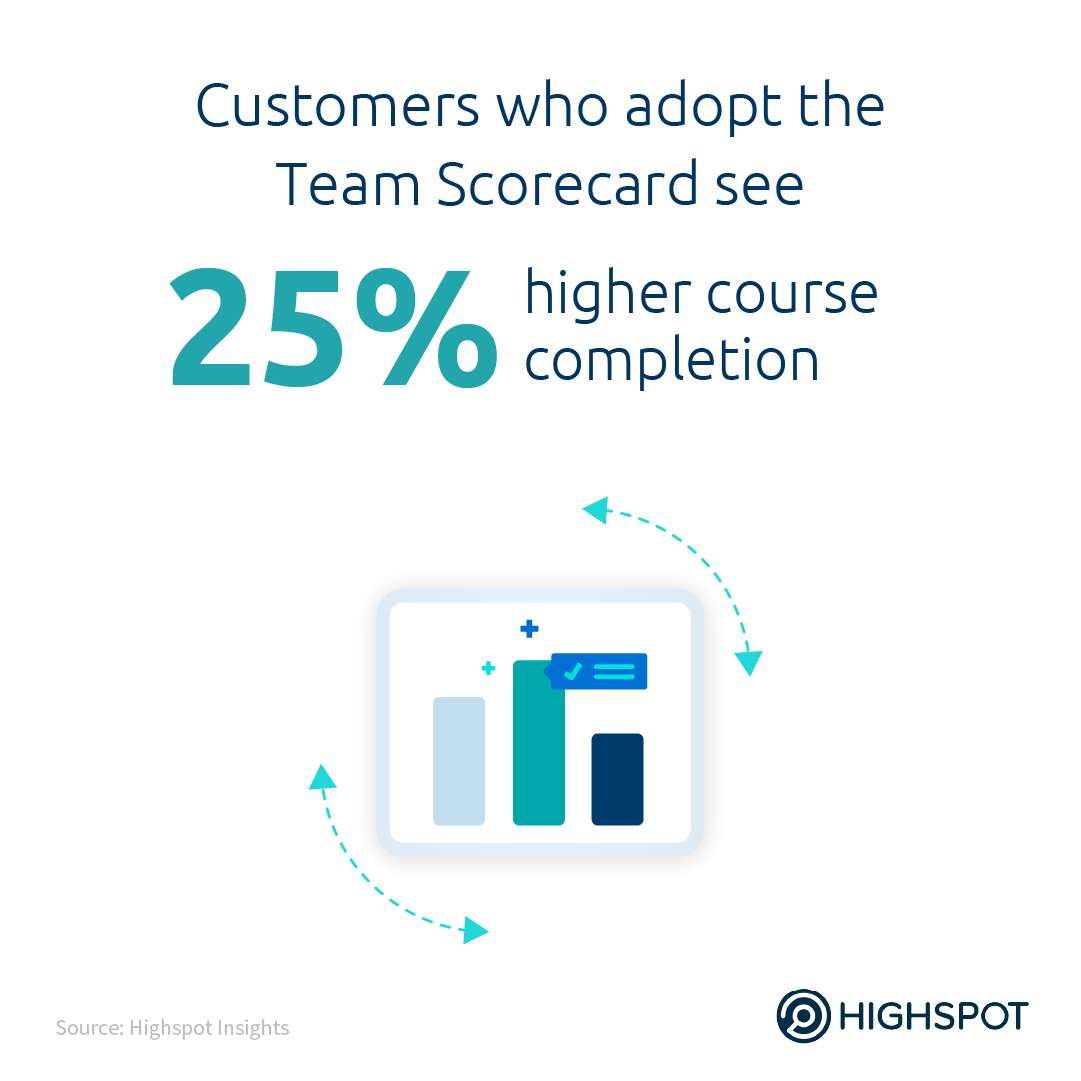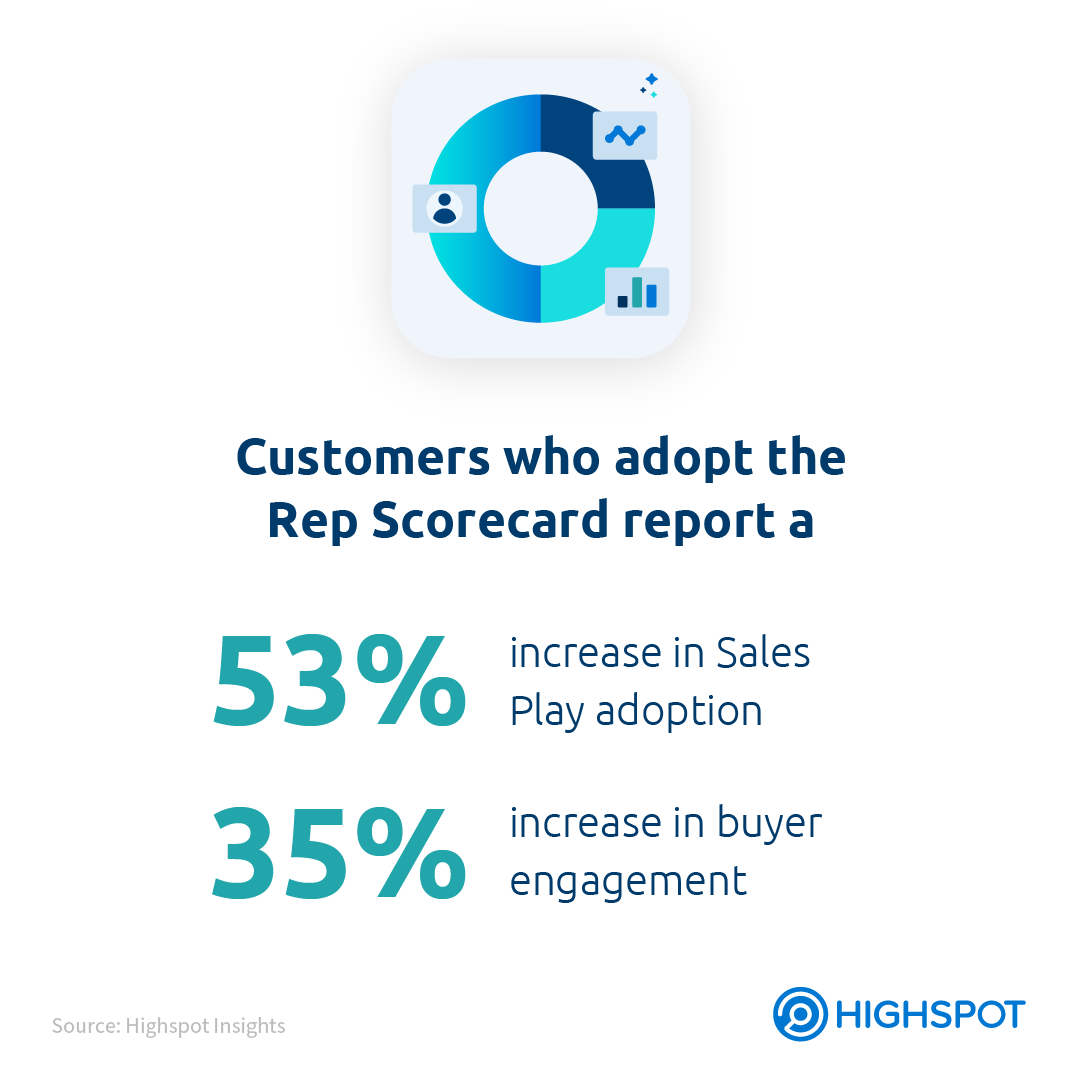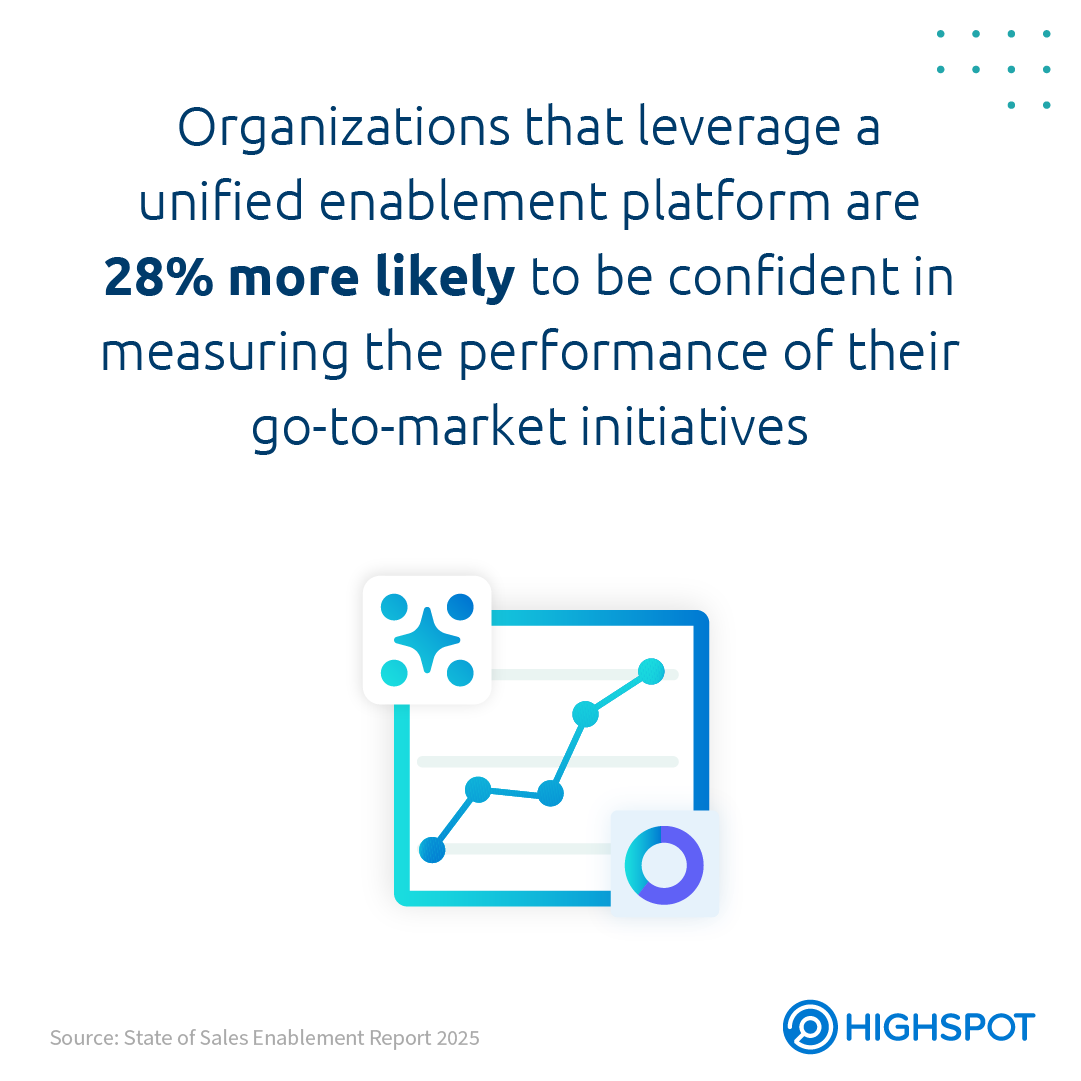Most go-to-market (GTM) initiatives aren’t failing—they’re flying blind. When analytics live in siloed systems, it becomes nearly impossible to understand what’s working and what’s not. Managers can’t coach effectively. Organizations struggle to identify performance gaps and scale success. Without unified insights into GTM performance, even top-performing organizations risk falling short.
AI is changing the game for mastering GTM performance. By analyzing data and surfacing actionable insights in seconds, AI empowers GTM leaders to track, coach, and scale winning behaviors. When infused into a unified data model, AI can connect the dots between content, engagement, learning, coaching, and business outcomes to understand how rep behaviors influence GTM performance.
With visibility into what’s working and where to optimize, you can better understand how to drive repeatable winning behaviors and scale execution.
Here are three tips for leveraging AI-driven analytics to drive rep behavior change and improve sales performance.
Drive team-wide accountability with unified insights
When teams move fast and priorities shift, it’s easy for GTM efforts to fall through the cracks. You invest time building marketing, enablement, and sales programs only to find your teams aren’t using them consistently—and even when they are, it’s hard to know what’s working. That’s where the Team Scorecard comes in.
The Team Scorecard gives GTM leaders a centralized view of team-level behavior across training, engagement, competencies, content, and business outcomes. It highlights who’s falling behind, where adoption is lagging, and which behaviors drive results. Having a data-informed view of team performance also enables you to assess how certain teams compare to others and what gaps appear across teams.
With AI automatically surfacing these insights, you no longer need to manually track rep engagement. You can quickly see which teams need support, which ones are excelling, and where to focus your enablement efforts. By tying team activity back to business outcomes like pipeline generation and win rate, you can also assess how these programs impact GTM performance.
Making these trends visible enables GTM leaders to stay proactive—identifying risks early, reinforcing the right behaviors, and course-correcting before small gaps turn into missed targets.
TIP: Leverage the Team Scorecard to track how many reps have completed the required training and are ready to engage with buyers. Customers who adopt the Team Scorecard see 25% higher course completion, revealing how unified visibility into team performance helps drive accountability and improve GTM readiness.

Diagnose gaps and reinforce the right behaviors
Scorecards aren’t just about tracking activities—they give you insights to help your frontline managers coach more effectively. While understanding performance at a team level is crucial, managers often need to go a level deeper to understand where to improve individual rep performance. That’s where the Rep Scorecard delivers its value.
The Rep Scorecard uses AI to provide a detailed view of how specific reps are engaging with GTM programs. It identifies whether they’re digesting Sales Plays, sharing content, completing training, and booking meetings. Just as important, it helps you track rep skill development over time and pinpoints where reps need help applying what they’ve learned.
With AI-powered insights into rep behaviors, managers can more easily diagnose gaps in individual performance and tailor coaching to each rep. They can spot trends, reinforce what works, and hold reps accountable to their success—resulting in more intentional coaching that accelerates skill development and boosts rep confidence.
TIP: Validate that reps consistently take the right actions to improve their performance using the Rep Scorecard. Customers who adopt the Rep Scorecard report a 53% increase in Sales Play adoption and a 35% increase in buyer engagement—highlighting how AI-driven insights help scale behavior change.

Scale the performance of your go-to-market initiatives
Over half (55%) of organizations are unable to effectively drive their go-to-market initiatives—and it’s largely the consequence of siloed teams, tools, and data that prevent execution. Without a unified view into how the actions reps take drive your initiatives forward and impact business outcomes, it’s difficult to identify gaps in your GTM strategy and know what to improve.
Closing the execution gap requires consolidated data across enablement programs, rep behaviors, and business results. With the Initiative Scorecard, you receive a data-driven view that ties together your leading indicators of success—metrics on your enablement programs and rep activities—to lagging indicators that dictate business results.
Instead of relying on siloed reporting to guess how your initiatives are performing, leaders can now understand GTM performance, see how close they are to hitting their goals, and identify where action is needed. With AI surfacing performance trends, gaps, and learnings across GTM initiatives, teams can execute faster and smarter—operating in a more agile manner and driving more predictable growth.
TIP: Use the Initiative Scorecard in Highspot to define, execute, and optimize your GTM initiatives. Organizations that leverage a unified enablement platform are 28% more likely to be confident in measuring the performance of their go-to-market initiatives.

Power GTM execution with AI-driven insights
Smarter selling starts with smarter data—and the ability to transform data into action, quickly. Highspot Scorecards are more than just dashboards; they’re catalysts for behavior change. With resources to help you identify what works and replicate success across your team, you can accelerate GTM execution.
By leveraging AI-powered analytics to drive team behavior change, coach reps more effectively, and scale GTM initiative performance, you can execute faster, sell smarter, and grow more consistently.
This blog post is part of Highspot’s research-backed blog series, Highspot Insights. With the help of our research teams, we provide data-driven best practices for sales enablement. If you have a topic you’d like to learn more about, please let us know. We’d love to hear from you.




